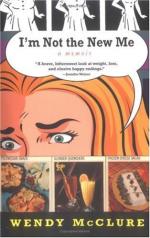At the earliest moment possible I got myself into my little room, and turned both keys upon myself and my rejected manuscript. But when I came to read the publisher’s letter, I learned that hope still remained, a flickering torch, upon a darkened universe. That excellent man did not refuse the story, but raised objections to certain points or forms therein, to which he summoned my attention. The criticism called substantially for the rewriting of the book. I lighted my lamp, and, with the June beetles butting at my head, I wrote all night. At three o’clock in the morning I put the last sentence to the remodelled story—the whole was a matter of some three hundred and fifty pages of manuscript—and crawled to bed. At six, I stole out and found the expressman, that innocent and ignorant messenger of joy or woe. The revised manuscript reached the publisher by ten o’clock, and his letter of unconditional acceptance was in my hands before another tea-time.
I have never been in the habit of writing at night, having been early warned against this practice by the wisest of fathers (who notably failed to follow his own advice); and this almost solitary experience of the midnight oil remains as vivid as yesterday’s sunset to me. My present opinion of that night’s exploit is, that it signified an abnormal pride which might as well have received its due humiliation. But, at the time, it seemed to be the inevitable or even the creditable thing.
[Illustration: HENRY MILLS ALDEN, EDITOR OF “HARPER’S MAGAZINE.”
From a photograph by G.C. Cox, New York.]
Sunday-school writers did books by sets in those days; perhaps they do still. And at least two such sets I provided to order, each of four volumes. Both of these, it so happens, have survived their day and generation—the Tiny books, we called them, and the Gypsy books. Only last year I was called upon to renew the copyright for Gypsy, a young person now thirty years old in type.
There is a certain poetic justice in this little circumstance, owing to the fact that I never worked harder in my life at anything than I did upon those little books; for I had, madly enough, contracted to supply four within a year.
We had no vacations in those days; I knew nothing of hills or shore; but “spoke straight on” through the terrible Andover weather. Our July and August thermometers used to stand up hard at over ninety degrees, day and night, for nearly a week at a time. The large white mansion was as comfortable as ceiled walls and back plaster could be in that furnace; but my own small room, on the sunny side of the house, was heated seven times hotter than endurance. Sometimes I got over an open register in a lower room, and wrote in the faint puffs of damp air that played with my misery. Sometimes I sat in the cellar itself; but it was rather dark, and one cherished a consciousness of mice. In the orchard, or the grove, one’s brains fricasseed quickly; in fact, all out-of-doors was a scene of bottomless torment worthy of a theology older and severer than Andover’s.




